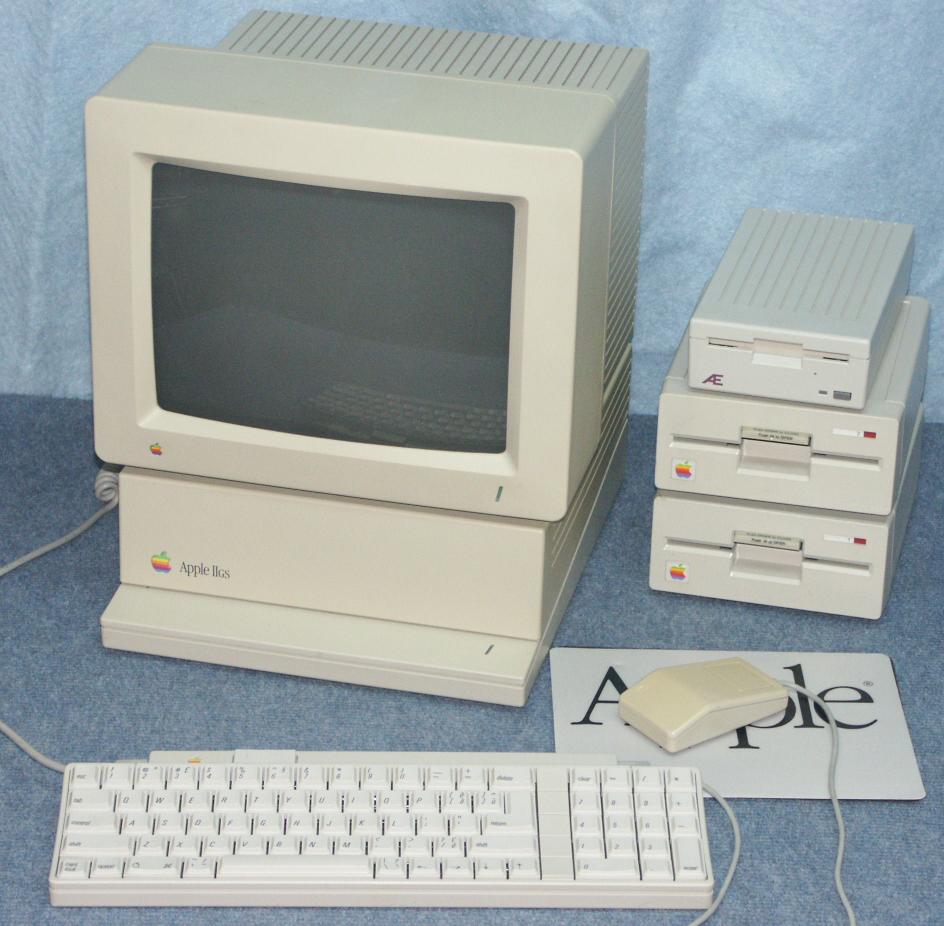Thoughts on Steve Jobs

When I was a child, I really thought my future was with computers. I remember receiving a big, beige PC for my birthday and doing a book report about Steve Wozniak, who for some reason I thought was the only Steve that mattered (perhaps the scope of the book was a little skewed). I was really into computers at that age, so much so that with a pair of oversized glasses and a complete disinterest in the outdoors, I fairly resembled the archetypal nerdy outcast. For a while I thought that was what I was going to be when I grew up. Not an engineer (I was developing a distaste for math even then), but something where the computer would be the focus of my world.
Computer as career path; not a strange thought for the child in the mid-90s. It’s only now how silly that seems, considering how much the computer forms the cornerstone of our lives. How it revolutionized how we interact with one another, how it nearly (or in some cases, completely) replaced multiple major avenues of communication, entertainment, commerce, information, you name it. But it’s really now, looking back on the career that I’ve actually chosen, how the computer has played a significant role in human expression and artistry. And the center of that is Apple, its hardware, software and major driving force: Steve Jobs.
I believe that Jobs understood that, if computers were to become an actual revolution in the daily lives of individuals, they would have to evolve as effortless extensions of human beings. The technology would have to catch up to that dream, but you would have to be able to “play” (which I mean in the divine sense) with your computer as a violinist plays with their instrument, as a painter interacts with the brush. The goal was the shortest and simplest step between thought and expression.
When I saw the iPad for the first time, I wasn’t terribly impressed. It seemed like a bigger, less portable iPhone. Until I realized that an iPad wasn’t just another device. It was a COMPUTER. It was a permanent step in that evolution that started with a keyboard, continued with a mouse, and finally landed with the physical gesture. I realized all computers will someday be this, and our way of interacting with them, expressing ourselves through them, will have changed forever.
As a filmmaker and editor I always fantasized that editing would someday resemble the technology seen in the science-fiction film Minority Report: moving clips and timelines around with effortless ease, like a painter in broad stroke. An art form that wouldn’t slow down when you wanted to speed up, that would ebb and flow to your inspiration. Though we’re not there yet, I believe Apple has pointed the way to making this fantasy real.
Sure, Avid existed long before Final Cut Pro, but FCP was the program where I really learned the craft of editing, developed a voice in construction, recognized visual juxtaposition and earned my instinct for storytelling. Final Cut Pro was not a perfect program (and still isn’t), yet its very availability and accessibility dwarfed Avid as a system that unleashed human expression. When I first learned Avid, I always thought of it as archaically keyboard-based, like MS-DOS, versus Final Cut Pro’s mouse-centric operation. I realize now how important that is. It points the way to the future: nonlinear editing with your hands.
I could have certainly learned other programs, used other interfaces, found other ways to make films as I saw them. But the effect of Apple’s products, the warmth and humanity they found through sheer simplicity! Jesus. I think the effect they had on my work is largely incalculable.
Though I was just a kid, I feel a little ashamed to say I thought Steve Wozniak was the genius behind Apple. He certainly had the technical know-how, but the vision belonged exclusively to another Steve, one who I admire greatly, and thank sincerely and deeply for his untraceable gift to my development as a filmmaker.
You’ll be missed.